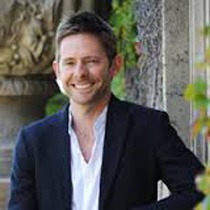
As it relocates Forster’s early, very English and Jane Austen-like comedies of manners to an entirely different geography and social context, the result is a great text as problem text, and one in which (as students often complain) nothing happens. Twidle suggests that A Passage to India (1924) is a text that arrives at the limit of ‘the English novel’ and points towards ‘the novel in English’: the proliferation of postcolonial fiction in the second half of the twentieth century.
Taking his cue from the convoluted syntax of Forster’s prose – so full of neithers, nors, nevers and nothings – he will explore A Passage to India as a work about which it is much easier to say what it is not, than what it is. In its famous absences (What happened in the Marabar Caves?), its failed conversations, misunderstandings and muddles, in the attempts to feel its way into the experience of religious ecstasy, we can almost see a certain kind of literary liberalism dissolve before our eyes. In the questions it owns up to, and the understated ambition with which it opens its inherited forms to foreignness of all kinds, A Passage to India emerges as a unique document of the colonial encounter, laying bare the limits of its language as it struggles to find words ‘at once true and kind, / or not untrue and not unkind’.
Dr Hedley Twidle has lived and studied in Namaqualand, Johannesburg, KwaZulu-Natal, Oxford, Edinburgh and York. A member of the Department of English at the University of Cape Town, much of his research is concerned with very local materials – writing in and of the Cape. Titled Prison and Garden: Cape Town, Natural History and the Literary Imagination, his doctoral work was concerned with the role of late twentieth-century literature in bringing portions of the archive into the public domain. He questioned the consequences of such writing, based in a specific locale (the Cape Peninsula) known for its natural beauty and biodiversity, but also for historical trauma and blatant, ongoing social inequity. He is currently working on an account of literary depictions of the ill-fated African Resistance Movement (drawing on an archive housed at the Alan Paton Centre of the University of KwaZulu-Natal); and a cultural history of the Grey Collection at the South African National Library in Cape Town, with a particular focus on ‘indigenous’ language texts.
This event will take place at Hiddingh Hall, University of Cape Town (UCT) Hiddingh Campus, Orange Street, Cape Town on Thursday 13 October at 17:30 and is free. Refreshments will be served from 17:00. No Booking is necessary. For more information on the series, please contact 021 480 7156 or fin-gipca@uct.ac.za
Hedley Twidle audio recording available for download.
Hedley Twidle video recording:
Start: 13 Oct ’11 5:30 pm
End: 13 Oct ’11 6:30 pm
Cost: Free
Category: Great Texts / Big Questions
Organizer: GIPCA
Email: fin-gipca@uct.ac.za
Venue: Hiddingh Hall
Phone: +27 21 480 7156
Address: Google Map UCT Hiddingh Campus, 31-37 Orange Street, Cape Town, 8001, Cape Town, Western Cape, 8001, South Africa
